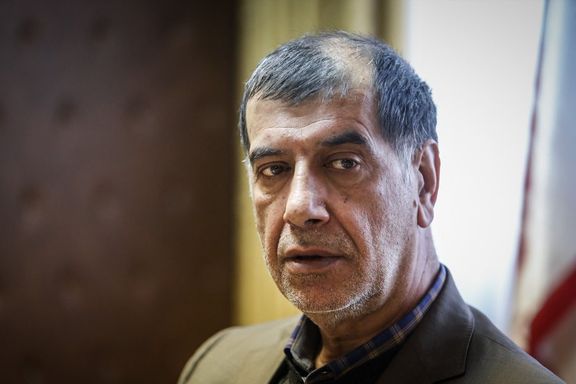Prominent Politician Warns Iran's Raisi Of Disillusioned Voters

A prominent conservative politician has warned of disillusioned voters and lamented Iran’s past annual oil income of $100 billion.

A prominent conservative politician has warned of disillusioned voters and lamented Iran’s past annual oil income of $100 billion.
Expediency Council member Mohammad Javad Bahonar said in an interview on Didban Iran website on Sunday, August 14, that it is normal for 30 percent of voters not to show up at the polls, as they might think their participation may not make a difference, but 49 percent was a bad record, and an indications that all doors must be opened for political activity in Iran.
Meanwhile, Bahonar criticized the current Iranian government, which is the outcome of the low-turnout election in 2021, for continuing to make promises although it knows it does not have the capability to fulfil them. Also, in an apparent criticism directed at President Ebrahim Raisi's frequent provincial visits, Bahonar said the president should not think that visiting various regions and expressing sympathy with the underprivileged will solve his problems.
According to Didban Iran, several members of the parliament have also criticized Raisi for his provincial visits and warned that he could be accused of populism. They warned that when the promises made during these visits remain unmet, people will no longer believe what the government says in other instances.
Amid a worsening economic situation since his election, Raisi has made a big show of his provincial visits and has advertised the effort on government media as an important accomplishment. Another public relations tactic has been blaming the economic crisis on his predecessor, while publishing sometimes unsubstantiated and contradictory figures on the economy.

On Sunday, lawmaker Sodayf Badri, said at the parliament that the people are under economic pressure and they no longer trust the lawmakers. Some even accuse the parliament of undermining the people's interests to protect the government, he said.
Explaining the country's economic situation, Bahonar said, "We consume 300 billion euros worth of energy in Iran every year. Consuming energy should eitherlead to welfare or to increasing production. But none of these happen in Iran. We might be able to save 30 percent of this energy without doing any harm to the people's welfare. This 30 percent saving means 100 billion euros can be added to the economy."
Although the figure cited by Bahonar seems exceedingly exaggerated, Iran does provide around 50-60 billion dollars in energy subsidy to citizens, by selling gasoline, natural gas and electricity extremely cheap.
Bahonar reiterated his idea about a bicameral parliament in Iran, a system in which one of the houses would exclusively prioritizes national interests. Currently, he said, various occupational and ethnic groups follow their interests at the Majles.
He regretted that Iran as a country that used to sell $100 billions of oil every year, now has $15 billion per annum through circumventing US sanctions and by selling oil under the counter. “Just imagine that the income of a country with a population of 80 million has dropped from $100 billion to $15 billion.” All the country's economic problems are due to the fact that the government spends 1.5 times the amount of its income. At the same time, we are a 100 billion Euro country that wishes to live like a 500-billion-euro country.
Bahonar criticized the way the government is managing the affairs of the country. He said: "Japan with a population of 160 million has 600 thousands government employees, while Iran has a population of 80 millions and 4 million government employees.